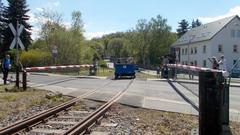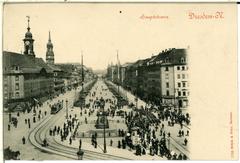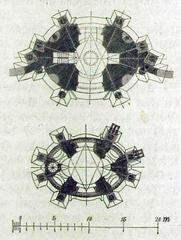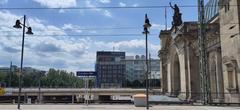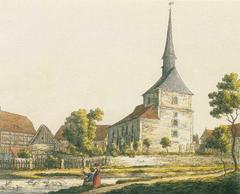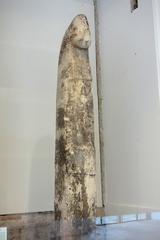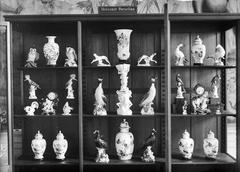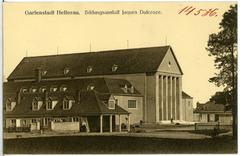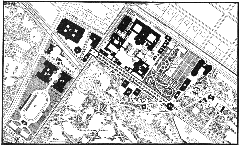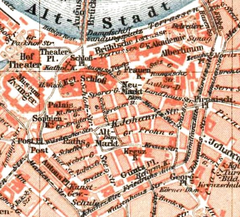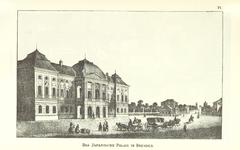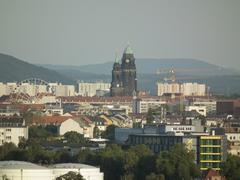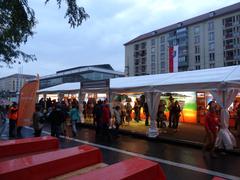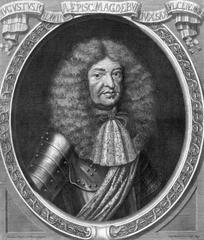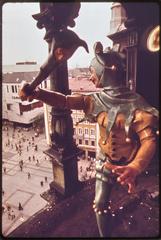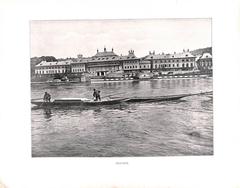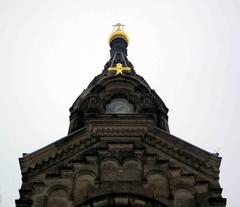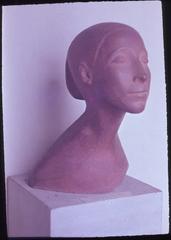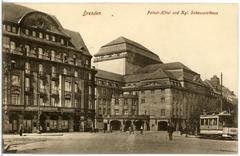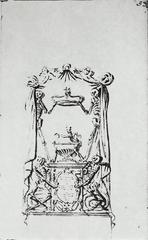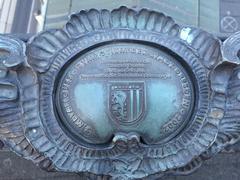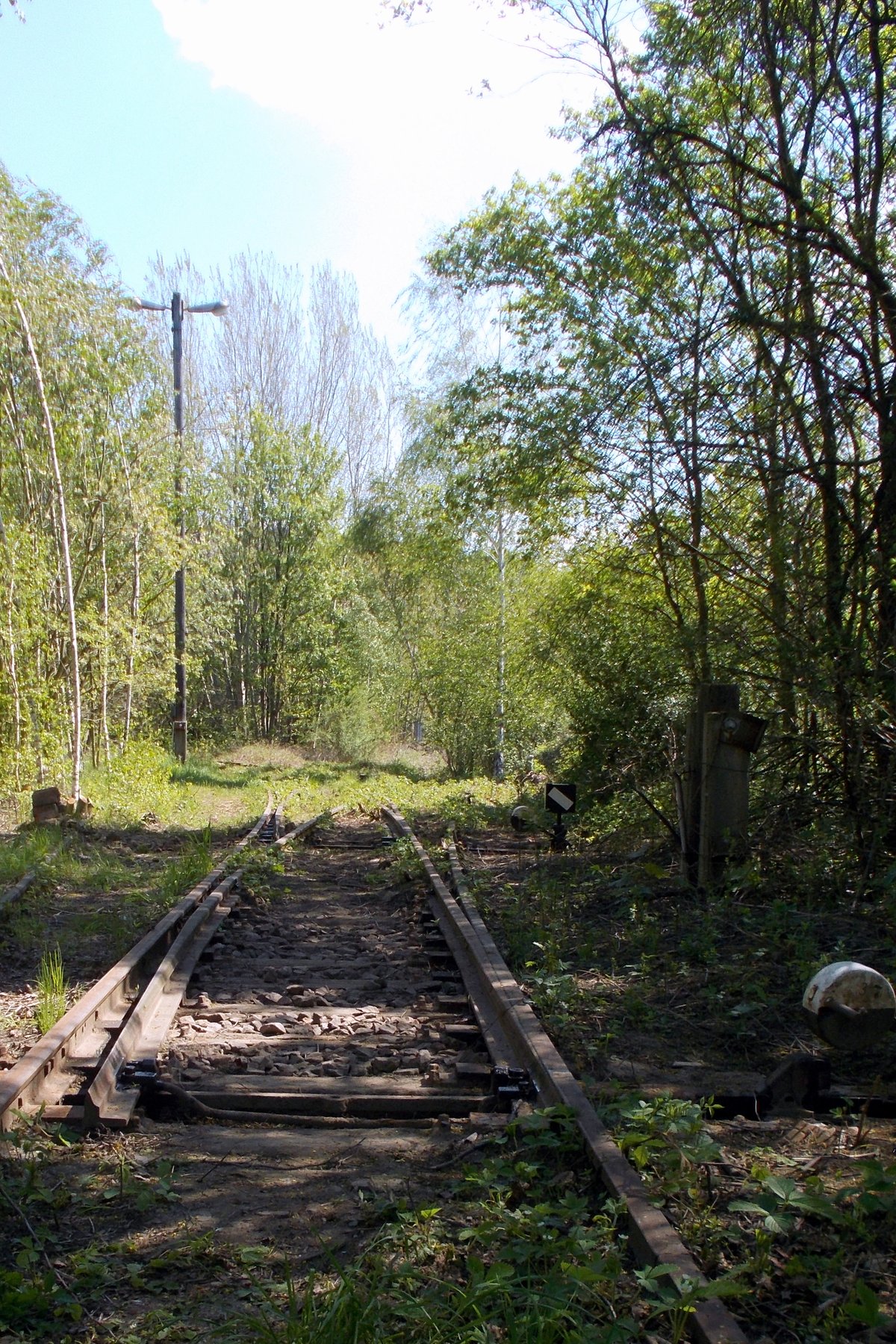
Windbergbahn Dresden: Visiting Hours, Tickets, and Historical Sites Guide
Date: 15/06/2025
Introduction to Windbergbahn Dresden and Its Significance
Situated on the southern edge of Dresden in the scenic Elbland region, the Windbergbahn—also called the Saxon Semmeringbahn—stands as a cornerstone of Germany’s railway and industrial heritage. Built in 1856 to transport hard coal from the Windberg mountain pits to Dresden, it is recognized as Germany’s oldest mountain railway. Over time, the Windbergbahn has transitioned from a crucial industrial artery to a vibrant museum and cultural attraction that both preserves and celebrates Saxony’s coal mining past.
Today, the Windbergbahn Railway Museum at Dresden-Gittersee station welcomes railway enthusiasts, families, and travelers from April to October. The museum, housed in a 1920s-style station, features original mechanical signal boxes, historic rolling stock, and immersive exhibits. On select weekends and event days, heritage train rides aboard restored 1911 observation cars offer panoramic journeys along the line’s dramatic gradients and curves. Accessibility is thoughtfully considered in the museum facilities, although the historic train cars have some limitations for those with mobility challenges.
Easily accessible via public transport and with nearby parking, the Windbergbahn is well integrated into Dresden’s tourism landscape. The surrounding area features historic sites such as the Altstadt, the Elbe River valley, Schloss Burgk, and a network of hiking and cycling trails along the former railway. Special events—including the season opening, adventure weekends, and unity day rides—provide additional opportunities to engage with this living history.
Tickets for the museum and train rides are available onsite and online, with family-friendly pricing and options for guided tours. The Windbergbahn not only preserves Saxony’s industrial story but also fosters community engagement and sustainable tourism through its volunteer-driven operations.
For up-to-date information on opening hours, ticketing, and events, consult the official Windbergbahn website and regional tourism portals (museum-euroregion-elbe-labe.eu, windbergbahn.de, elbelabe.eu).
Comprehensive Guide Contents
- Welcome to the Windbergbahn: Dresden’s Historic Mountain Railway Experience
- Railway Origins and Early Development (1856–1868)
- Transition to State Ownership and Expansion (1868–1908)
- Emergence of Tourist Excursions and Technical Innovations
- Decline, Preservation, and Museum Foundation
- Modern Revival and Heritage Operations
- Visitor Information (Hours, Tickets, Accessibility, Directions, Tips, Attractions)
- Architectural and Technical Heritage
- Cultural and Regional Importance
- Planning Your Visit (Tours, Special Events, Facilities)
- Exploring the Area (Hiking, Cycling, Nearby Attractions, Dining, Accommodation)
- Frequently Asked Questions (FAQs)
- Recent Developments and Future Prospects
- Community Engagement and Educational Initiatives
- Integration with Dresden’s Tourism Strategy
- Summary and Final Visitor Tips
- Sources and Further Reading
Welcome to the Windbergbahn: Dresden’s Historic Mountain Railway Experience
The Windbergbahn, or Saxon Semmeringbahn, provides a unique window into Germany’s railway history. This guide details everything you need for a rewarding visit: from historical context and cultural importance to practical visitor information and recommendations for exploring the surrounding region.
Railway Origins and Early Development (1856–1868)
Construction of the Windbergbahn began in 1856, with operations commencing in 1857 to move coal from the Windberg mountain pits into Dresden. The railway’s engineering—characterized by steep gradients and tight 85-meter-radius curves—earned it the nickname “Sächsische Semmeringbahn” (museum-euroregion-elbe-labe.eu, dresden-magazin.com). The initial route linked Freital-Birkigt with Dresden-Gittersee, connecting the city to its coal supply.
Transition to State Ownership and Expansion (1868–1908)
The Royal Saxon State Railway acquired the Windbergbahn in 1868, broadening its function to include passenger services and general freight. By 1908, the line extended to Possendorf, adding popularity as an excursion railway, and was affectionately known as the “Possendorfer Heddel” by locals (railfaneurope.net).
Emergence of Tourist Excursions and Technical Innovations
As early as 1857, the Windbergbahn hosted scenic “Aussichtsfahrten” using decorated coal wagons. Later, purpose-built observation cars with panoramic windows enhanced the tourist experience, solidifying the line’s reputation as a leisure destination (dresden-magazin.com).
Decline, Preservation, and Museum Foundation
The 20th century saw coal mining decline and road transport rise, reducing the railway’s industrial role. Preservationists restored historic observation cars in 1980, and the Historical Windbergbahn Railway Museum was founded in 1988 at Dresden-Gittersee station, celebrating the line’s legacy (museum-euroregion-elbe-labe.eu).
Modern Revival and Heritage Operations (2010–Present)
Since 2010, Windbergbahn e.V. has operated the route as Saxony’s first standard-gauge museum railway. Regular heritage train rides, pulled by historic diesel locomotives, run from Dresden-Gittersee to Leisnitz/Schloss Burgk, offering stunning views and authentic experiences (steam-route-saxony.com).
Visitor Information
Visiting Hours
- Museum: April–October, Tuesday to Sunday, 10:00 AM–5:00 PM
- Heritage train rides: Weekends and special event days (confirm schedule online)
Tickets
- Museum: Adults €5, Children (6–14) €2.50, Family tickets available
- Heritage train rides: Adults approx. €8, Children €4 (varies by event)
- Purchase onsite or online at windbergbahn.de
Accessibility
- Museum: Wheelchair accessible
- Trains: Limited accessibility due to historic construction; contact the museum for assistance
Directions
- Location: Dresden-Gittersee station (Hermann-Michel-Straße 50, 01189 Dresden)
- Public transport: Bus lines 66, 166, 366 (Hermann-Michel-Straße stop, 150m from station)
- Parking: Available nearby
Best Time to Visit
- Spring and autumn for pleasant climate and scenic views
- Special event days (e.g., season opening in April, adventure weekends, Unity Day rides) for enhanced experiences
Nearby Attractions
- Dresden Altstadt, Elbe River valley, Schloss Burgk, hiking and cycling trails
- Family-friendly parks and museums throughout Dresden and Freital
Architectural and Technical Heritage
Dresden-Gittersee station, rebuilt in 1920s style, houses the museum and the only operational mechanical signal box (type Jüdel, 1957) on the line. The railway’s original route, with steep gradients and tight curves, remains intact, allowing visitors to experience historic train travel authentically (museum-euroregion-elbe-labe.eu).
Cultural and Regional Importance
The Windbergbahn encapsulates Saxony’s industrial past and the region’s coal mining legacy. Through ongoing efforts by Windbergbahn e.V., the museum and heritage railway foster appreciation for local history and technology (dresden-magazin.com).
Planning Your Visit
- Check the official website for current schedules and events (windbergbahn.de)
- Advance booking is recommended, especially for special rides and guided tours
- Guided tours and themed rides are available by arrangement
- Consider combining your visit with hiking or nearby museums for a full day’s experience
Exploring the Area: Hiking, Cycling, and Nearby Attractions
Walking and Cycling
Sections of the former railway, especially between Dresden-Gittersee and Possendorf, are now scenic trails for walking and cycling, featuring well-preserved railway engineering structures (saechsische-semmeringbahn.de).
Nearby Points of Interest
- Marienschacht Bannewitz: Historic coal mine and museum
- Burgk Palace: Regional history exhibits
- Oskarshausen: Family creative park
- Court Mill: Local history museum
- Münchner Platz Memorial: WWII and GDR history
- Steam Locomotive Museum
Dining and Accommodation
Dresden and Freital offer a wide range of restaurants and lodging, from Saxon cuisine to international options (hikersbay.com).
Frequently Asked Questions (FAQs)
Q: What are the Windbergbahn’s opening hours?
A: Museum: April–October, Tuesday to Sunday, 10:00 AM–5:00 PM; trains on weekends/special days.
Q: How do I buy tickets?
A: At Dresden-Gittersee station or online (windbergbahn.de).
Q: Is the site wheelchair accessible?
A: Museum: Yes; Trains: Limited—please inquire ahead.
Q: Are guided tours available?
A: Yes, by arrangement.
Q: Can I combine my visit with other attractions?
A: Yes—nearby historic sites, parks, and trails make for a varied day out.
Recent Developments and Future Prospects
Expansion and Restoration
Windbergbahn e.V. is expanding museum train operations, restoring historic rolling stock (including the 1912 panoramic carriage and late 19th-century coaches), and improving infrastructure with support from the community (saechsische-semmeringbahn.de).
Educational Outreach
Collaborations with schools and regional attractions extend the Windbergbahn’s educational mission. The museum hosts school groups and offers themed experiences, while special event days feature family activities and guided walks.
Integration with Dresden Tourism
The Windbergbahn is promoted alongside Dresden’s architectural and cultural highlights. Events are often synchronized with major city festivals, and the Dresden City Card offers convenient access and discounts for tourists (northabroad.com, dresden.de).
International Recognition
Dresden will host the 11th International Conference on Railway Operations Modelling and Analysis (RailDresden 2025), further highlighting the Windbergbahn’s global significance (tu-dresden.de, gor-ev.de).
Visitor Tips
- Confirm event dates and train schedules in advance
- Book tickets early for special rides and tours
- Wear comfortable shoes and dress for variable weather
- Support preservation efforts through donations or shop purchases
- Explore nearby trails and attractions to enrich your visit
Contact and Further Information
- Address: Hermann-Michel-Straße 50, 01189 Dresden
- Telephone: +49 (0)351 / 4 01 34 63
- Website: windbergbahn.de
- Facebook: Windbergbahn
For the most current information, always refer to the official website or contact the museum directly.
Enhance Your Visit
Download the Audiala app for audio tours, interactive guides, and event updates. Explore more about Dresden’s historical sites and Saxony’s railway heritage on our platform, and follow us on social media for exclusive content and offers.
Summary and Final Tips
The Windbergbahn is a living testament to Dresden’s industrial evolution, offering visitors a blend of historical depth, technical innovation, and scenic enjoyment. Its revival as a museum railway maintains the spirit of community engagement and sustainable tourism, while ongoing restoration projects and educational initiatives ensure its continued relevance. Pair your Windbergbahn adventure with other Dresden attractions for a memorable and meaningful visit. For planning, up-to-date details, and further inspiration, consult the official sources below.
Sources and Further Reading
- Visiting the Windbergbahn: Hours, Tickets, and Dresden’s Historic Mountain Railway Experience, 2025, Museum Euroregion Elbe-Labe (museum-euroregion-elbe-labe.eu)
- Visiting the Windbergbahn: Hours, Tickets, and Historical Insights in Dresden, 2025, So Lebt Dresden (so-lebt-dresden.de)
- Visiting the Windbergbahn: Museum Hours, Tickets, and Exploring Dresden’s Historic Saxon Semmering Railway, 2025, ElbeLabe (elbelabe.eu)
- Windbergbahn Museum Railway: Visiting Hours, Tickets, and Dresden Historical Sites, 2025, ElbeLabe (elbelabe.eu)
- Windbergbahn Dresden Elbland, 2025, Dresden Magazin (dresden-magazin.com)

